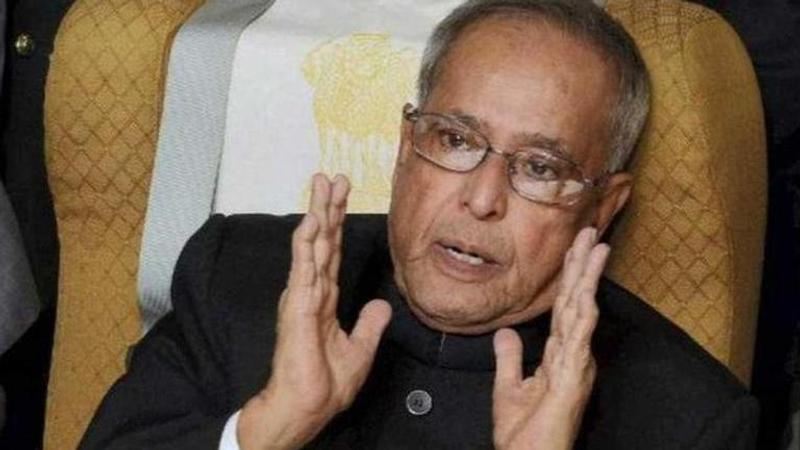Published 11:09 IST, October 23rd 2019
Pranab Mukherjee expresses concern over 'increase in violence'
Former prez Pranab Mukherjee said he was concerned about the increase in violence arising out of differences among people which is harming the nation's harmony

Former president Pranab Mukherjee on Tuesday said he was concerned about the "increase in violence" arising out of differences among people and the "utter disregard" for human life which is hurting the nation's harmony. Delivering a lecture at the North East Institute of Advanced Studies on its Foundation Day via video conferencing from Delhi, Mukherjee said there was a need to encourage reasoned public engagement on all issues of national importance and that dialogue, not disruption was essential for a healthy democracy.
"Today, I notice, with great concern, there is an increase in violence arising out of differences. Consequently, our ability to co-exist in harmony has greatly suffered," Mukherjee said while delivering the lecture in memory of its institute's patron Justice (retd) K N Saikia on the topic of 'Tolerance in Indian Society'. "This type of violence not only perpetuates physical harm but mental, intellectual and socio-economic destruction as well. There is an utter disregard for the life of fellow humans; there is mistrust and hatred; there is suspicion and jealousy," he added.
On the 'foundation of civilization'
The Bharat Ratna awardee said peaceful co-existence, compassion, respect for life, and harmony with nature forms the foundation of our civilization. "Every time an individual, a child or woman is brutalised, the soul of India is wounded. Manifestations of rage are tearing our social fabric. Every day we see increased violence around us. At the heart of this violence is darkness, fear, and mistrust," he lamented.
On Tolerance
While defining tolerance, Mukherjee highlighted, "Tolerance, as I envision it, is essentially a state of mind. I strongly believe that it is a manifestation of our age-old belief in ahimsa. Ahimsa has been the core of Indian ethos and Mahatma Gandhi has been its most vocal apostle in modern times". "Today, more than ever, we need to remind ourselves of that unfettering faith the Father of our Nation, Mahatma Gandhi, had in Ahimsa and not just tolerance, but mutual respect. Circumstances today have forced us to ask ourselves if we have lived up to the aspirations of the Father of our Nation," he said. "We must free our public discourse from all forms of violence, physical as well as verbal. Only a non-violent society can ensure the participation of all sections of people in the democratic process, especially the marginalized and the dispossessed. We must move from anger, violence, and conflict to peace, harmony, and happiness," he advised.
'Dialogue is necessary'
Mukherjee said in a democracy, informed and reasoned the public engagement on all issues of national importance is essential and dialogue is necessary not only to balance the competing interests but also to reconcile them. "Divergent strands in public discourse have to be recognised. We may argue, we may agree, or we may not agree. But we cannot deny the essential prevalence of multiplicity of opinion. Only through a dialogue can we develop the understanding to solve complex problems without an unhealthy strife within our polity," he said.
'Soul of India resides in pulralism'
Stating that the soul of India resides in pluralism and celebration of diversity, he said, "This plurality of our society has come through assimilation of ideas over centuries. Secularism and inclusion are a matter of faith for us. It is our composite culture which makes us into one nation." "India's nationhood is not one language, one religion, one enemy, it is the 'Perennial Universalism' of 1.3 billion people who use more than 122 languages and 1600 dialects in their everyday lives, practice seven major religions, belong to three major ethnic groups- Caucasians, Mongoloids, and Dravidians live under one system, one flag and one identity of being 'Indian' or 'Bhartiya' and have 'no enemies'. That is what makes Bharat a diverse and united nation," Mukherjee said.
Updated 11:38 IST, October 23rd 2019




